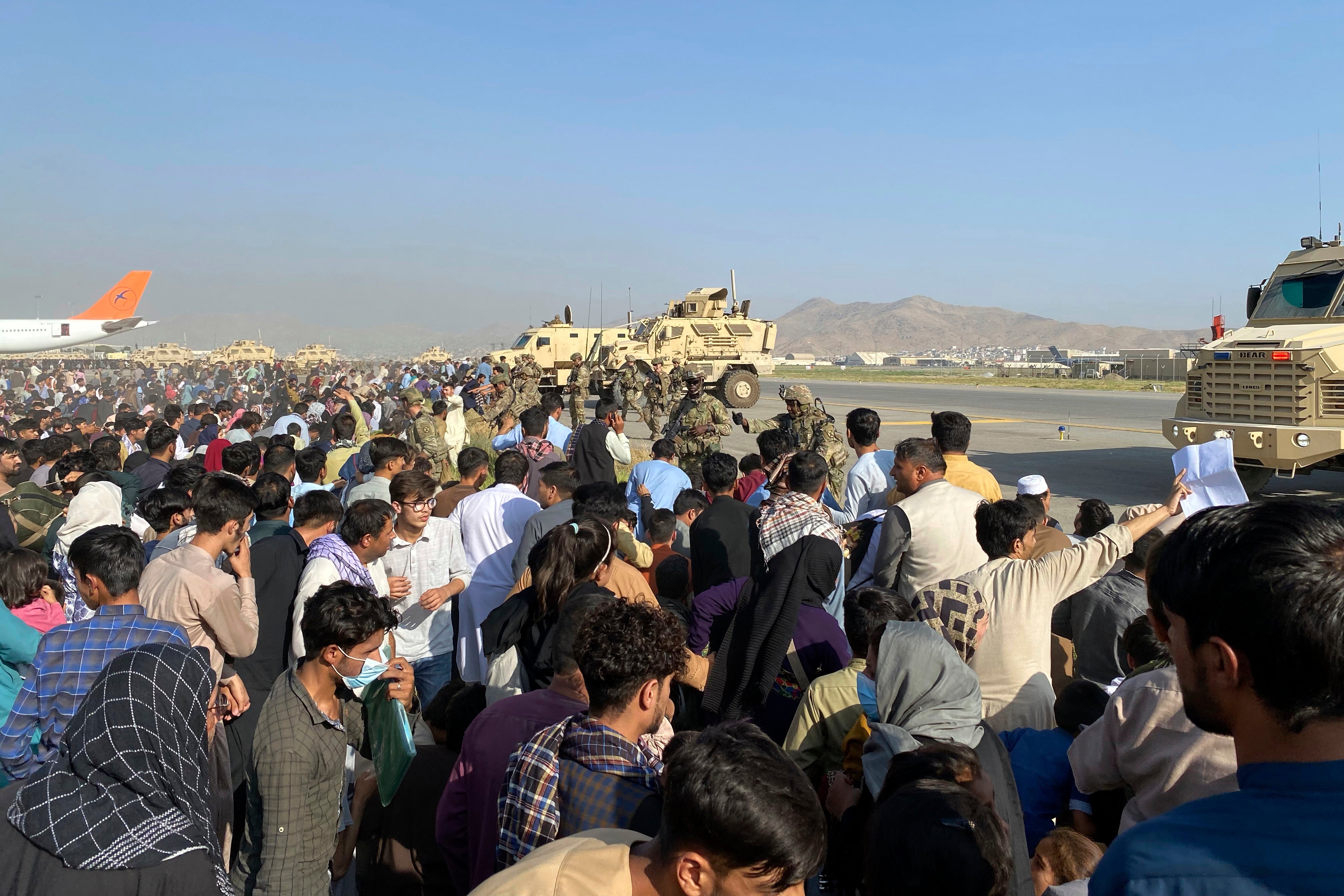How to help displaced people in Afghanistan
The Taliban has taken over Kabul and the crisis has left huge numbers homeless and trying to escape

Your support helps us to tell the story
This election is still a dead heat, according to most polls. In a fight with such wafer-thin margins, we need reporters on the ground talking to the people Trump and Harris are courting. Your support allows us to keep sending journalists to the story.
The Independent is trusted by 27 million Americans from across the entire political spectrum every month. Unlike many other quality news outlets, we choose not to lock you out of our reporting and analysis with paywalls. But quality journalism must still be paid for.
Help us keep bring these critical stories to light. Your support makes all the difference.
If you’ve so much as glanced at the news cycle in recent days, you will know that a massive political and humanitarian crisis is unfolding in Afghanistan. Following the withdrawal of US troops and the collapse of the Western-backed government, Taliban militants have taken the capital, and are now in almost complete control of the country.
Extremely distressing videos circulated widely on social media, show civilians desperately clinging to the sides of departing planes at Kabul airport, and what appear to be revenge attacks against the group’s previous opponents. Thousands of refugees are already flooding out of the country, and many more remain trapped in desperate situations.
Here’s how you can help Afghans affected by the crisis, both with time and with money…
Petition your local MP
Campaigners are urging citizens to write to their local MPs to demand that vulnerable Afghans be granted refugee status in the UK – particularly interpreters and support staff who risk reprisals for cooperating with western powers in the past.
Parliament will meet on Wednesday to discuss the UK’s response to the crisis, and many social media users have already shared template letters that you could send to the relevant representative.
Boris Johnson is coming under pressure to set up a safe passage and resettlement scheme for Afghan refugees. There are particular fears that high-profile women and anyone with links to the west will be targeted by the Taliban if they can’t escape.
At the moment, the UK is far behind the likes of Canada and the US who appear likely to resettle tens of thousands of refugees from the country, so a large surge of public pressure could go a long way.
The Independent has launched a petition urging the UK government to be more ambitious in its plans to take in Afghan refugees following the Taliban seizing power and withdrawal of western troops. Afghans are now facing a similar plight. You, our readers, have already shown your strength of feeling in letters and on social media. Here’s a chance to have your voice heard by adding your signature. We thank you for your support. To sign the petition click here
Donate to charities
As is usually the case with overseas crises, it’s vital to support those that can provide direct relief. Afghanaid is providing emergency assistance to families displaced and broken up by the conflict, Unicef is supporting children that have lost their homes, and Islamic Relief is providing food packs to vulnerable families as Afghanistan has also suffered a recent drought.
The International Rescue Committee has launched an appeal for funds to provide a safety net for displaced citizens, particularly in Kabul, while former Conservative MP Rory Stewart tweeted a fundraiser for the Turquoise Mountain Trust which has supporting victims of violence in Afghanistan for over 15 years.
Donations don’t necessarily have to be financial either. Miles4Migrants is asking citizens to donate their air miles and credit card points to refugees who need to flee the country, but do not have money for flights.
Raise awareness on social media
Awareness-raising on social channels sometimes gets a bad rap, and certainly it’s no substitute for funds or concrete action, but spreading understanding can catalyse countermeasures and boost charity appeals the world over.
If you’re not especially keyed in to the intricacies of the situation, avoid over-simplified takes and narratives, and instead amplify the voices of NGOs, and local Afghan activists and journalists. Petitioning government representatives on social media can also be as worthwhile as addressing them directly.